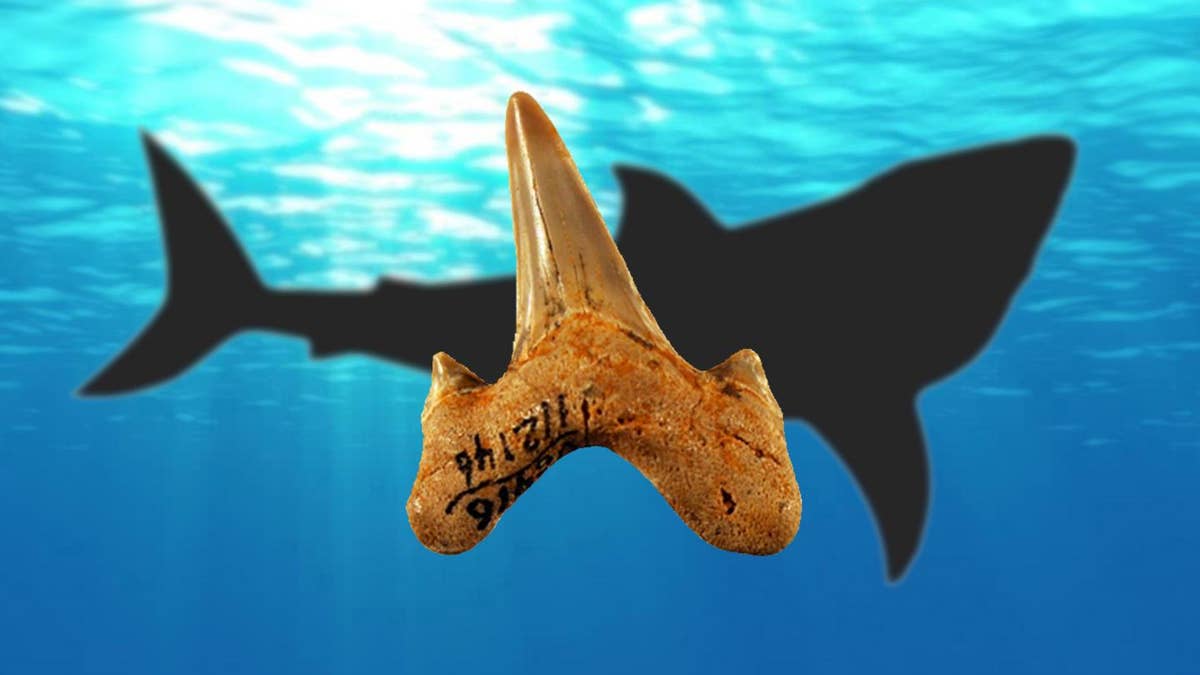
Megalolamna paradoxodon had grasping-type front teeth and cutting-type rear teeth likely used to seize and slice medium-sized fish and it lived in the same ancient oceans megatoothed sharks inhabited. (Kenshu Shimada)
Researchers have discovered a new species of prehistoric shark, and at about 13 feet long, it was comparable to the size of the great white sharks of today.
The new predator, called Megalolamna paradoxodon, lived about 20 million years ago and is now extinct. The scientists based their discovery on just a handful of teeth from the shark, describing five of the prehistoric chompers (which originated from three different countries) in a new study in the journal Historical Biology. Like great whites, the shark is a member of the lamniformes group, and it lived during the Miocene epoch, which spans about 23 million to five million years in the past.
Kenshu Shimada, the lead author of the new paper and a professor at DePaul University, described the species as “exceptionally rare.”
Related:
“The fact that such a large lamniform shark with such a wide geographic distribution had evaded recognition until now indicates just how little we still know about the Earth's ancient marine ecosystem,” he told FoxNews.com in an email.
He said that their newly-discovered ancient shark was “distantly related” to great white sharks.
The new shark had teeth in the front meant for grasping, and teeth in the back for cutting, and likely ate “medium-sized fish” according to a statement from DePaul University announcing the discovery. Its teeth measured as much as 1.8 inches long.
Follow Rob Verger on Twitter: @robverger








































